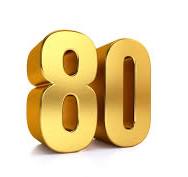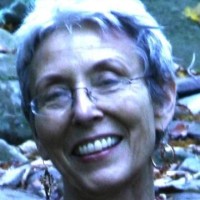I am sliding into my eightieth year. No, I’m not going to be eighty soon. I’ll be seventy-nine, which is—as I’m saying—the beginning of the eightieth year of my life. I still feel unaccountably young, and one way I manage that is to have some older friends. When asked her age, my friend Marilee Peterson usually glares and says, “I am older than dirt!”
One life event that comes naturally over time is the death of our friends. There is something shocking about death. It may be the one inevitable fact of life but, still, death is a mystery. It’s a passage and, generally speaking, it’s irreversible.
I say “generally speaking” because my friend Pat Brunges died—a clinical death—in an ambulance a few months back and lived to talk about it. Lived, as well, to deal with the broken rib that came from someone’s shocking her heart to restart it.
But for most of us, once we die, we move on. Whatever that may mean.
It has been my experience that the deaths that occur as a result of illness or accidental trauma are infinitely easier to cope with than those that happen years prematurely and by choice. A former neighbor of mine took his own life several years back, and I asked myself many times afterward if there was anything I could have done to change Greg’s decision. Surely, yes. Surely, there was something. A couple of times since, on the street, I thought I saw him. . . Then I realized that, no, it was not Greg. Greg is gone.
The pain of a friend’s suicide has been experienced by a whole tribe of people—fairly young people—on Whidbey Island in the last couple of weeks. In that time, two vibrant individuals in their thirties, or perhaps early forties, who lived here made the choice to end their own lives. They were connected to each other, and one of them grew up on Whidbey, so the cross currents and overlapping waves from these two personal tragedies are touching many local hearts—a daughter’s best friend, a son’s first love.
I believe it’s the thought what could I have done? that carries the greatest sting. I had affection for you. I respected you. Was that not enough?
Of course, it is never enough. The whole world can love us, but if we do not love ourselves, then, ultimately, our lives will not feel to us that they’re worth living.
My revered teacher recently published an essay about how, in our search for inner peace, we can reclaim, rename, and reconceive any aspect of our lives to support ourselves to find what we’re looking for. If something about our lives is unsatisfying to us, or has come to feel flat to us, we can find new words for it and, with this renaming, we can discover that—yes—what we have is quite sufficient for our needs. It is, in fact, divine.
For instance, in regard to aging, I could focus on the changes that are happening to my body and the way that, as an older woman, I have become invisible to large swaths of the people around me… Or, on the other hand, I could look at the mental tranquility I have developed and the way my guru-mantra—employed now over some length of time—protects me and helps to keep me steady. So, instead of “aging,” I could look at how I’m “coming into my maturity.” And what a difference that makes!
We may not be able to do this for those who have chosen to leave us but, seeing the pain their departures have created for ourselves and for those we love, we can decide that we will not make that particular choice. We will find a way to survive—and to thrive—for as long as we can.
Even if we’re “older than dirt.”


My uncle back east took Medically Assisted death a few years ago, here in Canada. He was 92 and going downhill, bodywise, but he wasn’t ill. I called and said goodbye the evening before he died, surrounded by his five kids.
My 71 year old cousin has been planning suicide since living with him in his final year. Because they won’t give her MAID for her depression, she’s going to Switzerland for her death. I’ve written and spoken to her four siblings and urged them to seek ways to change her mind or even engage Social Services for mental health. They aren’t terribly close with her. I told them that if they don’t at least try, they’ll be asking themselves in years to come if there was anything they could’ve done to change her decision.
At lunch with my mid-thirties neighbours the other day, I found myself talking about this situation. I blurted out that if only my uncle had had an ounce of spirituality, perhaps my cousins might have as well. I knew of the wife’s deep reverence for life and nature, but the husband surprised me by declaring, “I don’t have a spiritual bone in my body”. “How do you know you don’t?” I asked. “How do you know you do?” he countered.
I found myself contemplating this at home. I thougnt of the recent reclaim, rename and reconceive essay. If I’d been quicker, I might have turned the conversation to a definition of spirituality, perhaps found another word for it. My cousin is devoid of love. She feels abandoned, unloved, unloveable, and unloving. Of this I’m convinced after hearing about her appearance, the condition of her house, and her beliefs, from her various siblings.
My neighbour, on the other hand, is generous, kind, helpful, and believes in ‘paying it forward’, as he said when he brought the big propane heater and a blanket out onto the lawn to warm my elderly bones where we were sitting. He loves and stewards the forest he lives in, he adores his wife and large extended family, and he’s sacrificed tremendously for his dogs, when they needed care that could only be found hundreds of miles away. I could’ve pointed out that every bone in his body is spiritual, because spirit is love, and love is spirit. If the opportunity arises again, I shall do so.
Vicki, thank you so much for sharing your experience with your family, and your observations! “Spiritual” is a word that scares a lot of people. But “love”? It’s all a lot clearer when you understand that love is the foundation. And this can be demonstrated, minute by minute, in our lives.